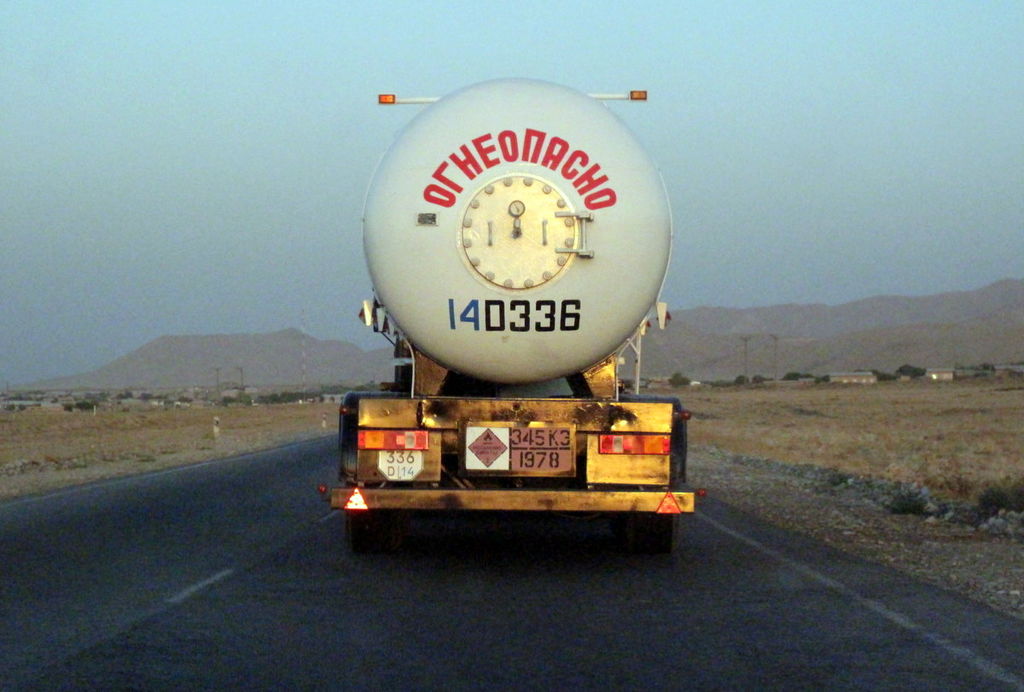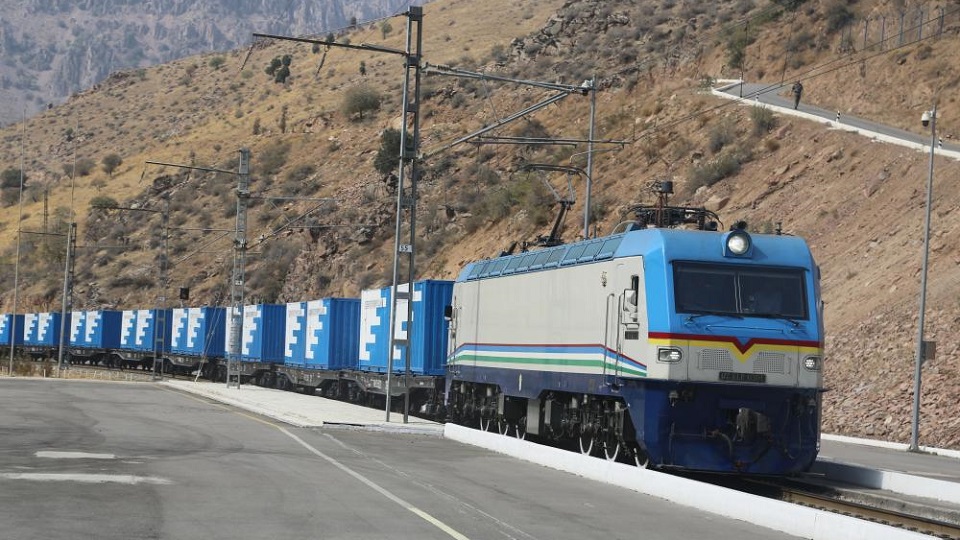
Increased Reliance on Russia and Commitments to China Driving Uzbekistan’s Gas Imports
Increased Reliance on Russia and Commitments to China Driving Uzbekistan’s Gas Imports
Executive Summary:
- Uzbekistan has been dealing with severe energy shortages over the past few years due to issues in gas production and a transition to using more imported gas for energy needs.
- Tashkent has signed major agreements with Ashgabat and Moscow for gas imports, in part, due to Uzbekistan’s commitments to exporting gas to China and pressure from the Kremlin to increase the import of Russian gas.
- Increased reliance on Russia gives Moscow more leverage over Tashkent, complicates Uzbekistan’s pursuit of a more balanced foreign policy, and risks cuts in energy exports when relations are particularly strained.
Since 2022, Uzbekistan has faced an energy shortage with significant political and economic consequences. Despite its gas reserves, the country has transitioned from an energy exporter to an energy importer. A terminal decline in domestic gas production and a lack of significant discoveries of new deposits, coupled with aging infrastructure, have led to the energy shortages, particularly in the winters of 2022 and 2023 (Interfax, February 22; Daryo, March 27). Cogeneration plants running on gas produce almost 85 percent of Uzbekistan’s electricity. In this regard, the gas shortages and growing electricity crisis have forced thousands of industrial workers into temporary layoffs and fueled public discontent (Eurasianet, December 9, 2022; CABAR.asia, January 1, 2023; see EDM, April 18, 2023). The gas shortage in Uzbekistan could lead to further discontent in the population’s future, and Tashkent’s growing alliance with Moscow may play a role in the tense geopolitical environment in the region.
In Tashkent alone, approximately 6,000 wholesale gas customers were disconnected from the national gas network, and 120 out of 584 neighborhoods experienced frequent and prolonged power and gas outages during the winter of 2023 (Eurasianet, January 16, 2023). The government has adopted a multi-pronged strategy to address the growing energy crisis, including importing gas from various countries, including Russia and Turkmenistan. Uzbekistan’s share of imported gas rose from $50.4 million in 2020 to $695 million in 2023, reflecting a growing reliance on external sources to meet domestic demand (Daryo, March 27).
Three critical reasons underscore Uzbekistan’s move to increase its gas imports from external sources. First, domestic gas production is declining. Uzbekistan’s gas production fell from 22.01 billion cubic meters (bcm) in January–May 2022 to 19.86 bcm during the same period in 2023. In addition, production fell to 11.59 bcm in January–March 2024 (Stat.uz, June 20, 2023; April 22). Depleted gas reserves and infrastructure failures have led to this decline, prompting Tashkent to seek energy imports to address the shortages.
The second reason is the growing energy consumption in Uzbek households. The population’s share of total energy consumption increased from 26.4 percent in 2016 to 28.9 percent in 2022. Calculations suggest that the population’s demand for electricity could grow from 5 to 5.3 percent annually until 2035 (Kun.uz, February 1, 2023). In addition, industrial growth is driving gas imports. By the end of 2023, industrial production had increased by 6 percent (Azernews, February 23). The industry sector alone consumed nearly 40 percent of Uzbekistan’s electricity production in 2019 (International Energy Agency, April 2020). Rising household and industrial energy consumption coupled with declining domestic gas production have increased Uzbekistan’s need for gas imports.
Factors outside the country are critical to Uzbekistan’s energy imports, particularly its commitment to export gas to China. Despite domestic gas shortages that resulted in zero gas exports to China in the first quarter of 2023, Tashkent is working to find alternatives for meeting its contractual obligations (see EDM, April 18, 2023: Kun.uz, March 29). Uzbekistan’s gas exports to China fell from $1.07 billion in 2022 to $563.5 million in 2023, a decline of nearly 50 percent (Gazeta.uz, January 2022). In this context, Uzbekistan’s increasing gas imports may be related to fulfilling its contractual obligations without gas disruptions and preventing damage to relations with China.
Over the past few years, Uzbekistan has signed major gas agreements with Turkmenistan and Russia. In 2023, Tashkent and Ashgabat signed a contract to supply Uzbekistan with up to 2 bcm of Turkmen gas (Kun.uz, August 25, 2023). In addition, Uzbekistan reached an agreement with Russian majority state-owned oil and gas company Gazprom to purchase 2.8 bcm of natural gas annually (Kun.uz, March 7). Tashkent appears to be particularly interested in importing Russian gas, with plans to nearly quadruple imports by 2026, reaching 11 bcm per year via Kazakhstan. Long-term gas talks between the two parties are ongoing (Trend News Agency, February 13). Uzbekistan also plans to modernize its main gas pipeline system between 2024 and 2030, particularly in the northern direction, reflecting the country’s growing interest in Russian gas (UzDaily, March 5).
Two primary reasons explain Uzbekistan’s interest in importing more Russian gas. First, Tashkent harbors doubts about the reliability and sustainability of Turkmen gas imports, as evidenced by Turkmenistan’s export cuts to Uzbekistan in January 2023 due to technical problems (Kun.uz, January 18, 2023). Second, Russian gas is more reliable than Turkmen gas and would play a stabilizing role in resolving Uzbekistan’s gas shortage issue. Since the beginning of the war in Ukraine, Russia has turned to Asian gas markets due to reduced exports to Europe. The Uzbek need for gas provides Russia with a new market to partly supplement these losses (The Moscow Times, January 26, 2023). Uzbekistan’s Minister of Energy Jurabek Mirzamahmudov stated that the import of Russian gas should not be politicized and that it is a “commercial relationship.” He asserted that the Uzbek market needs additional gas supplies from somewhere, and Russian gas can fill this gap (Gazeta.uz, November 29, 2023). Additionally, Moscow’s mounting pressure on Uzbekistan has led Tashkent to view increased imports of Russian gas as a way to alleviate political pressure and maintain stable relations.
Both internal and external reasons motivate Tashkent to increase the import of natural gas from external sources, specifically Russia. Importing more gas, however, has positive and negative implications for the country’s political and security environment. On a positive note, importing additional gas will allow Uzbekistan to keep a balance between supply and demand in ameliorating energy shortages, reduce the possibility of any explosion of public discontent, and continue the country’s economic growth. In contrast, increasing dependency on imports from external countries, particularly Russia, creates new security vulnerabilities. Without reducing this dependence and expanding the use of diverse energy sources for power generation, Increased reliance on Russia gives Moscow more leverage over Tashkent, complicates Uzbekistan’s pursuit of a more balanced foreign policy, and risks cuts to energy imports when relations are particularly strained.


